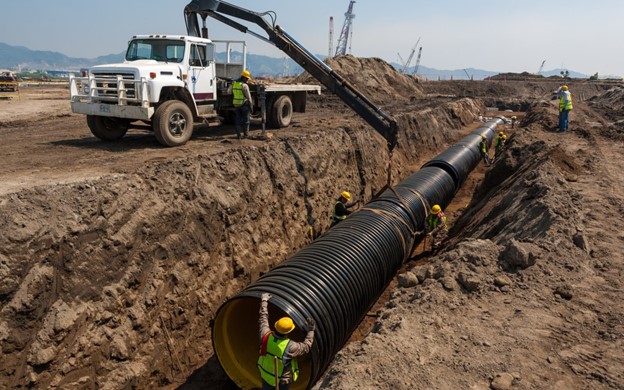In the face of rising populations, changing demographics, natural disasters among others, the adoption of digital solutions, is a highly needful measure in catalysing innovations and supporting smarter water management. Digitally transforming Africa’s water and sanitation sectors is again critical in addressing the myriad of challenges confronting these sectors.
According to a 2022 special report by the UNICEF/WHO Joint Monitoring Programme for Water Supply, Sanitation and Hygiene, achieving the Sustainable Development Goals (SDG) targets on water, sanitation and hygiene in Africa will require a dramatic acceleration in the current rates of progress. A statement released on this report projects that Africa requires a 12-fold increase in current rates of progress on safely managed drinking water and a 20-fold increase for safely managed sanitation to achieve its SDG targets.
Higher education is indeed well placed to champion the digital transformation of the water and sanitation industry through the conduction of research, development of new knowledge, training of highly skilled manpower, leveraging start-of-the-art laboratories to develop new technologies and creating important platforms to educate and facilitate dialogue among stakeholders in the sector, as well as the public, just to mention a few.
In a move to address the underlying challenges confronting the ICT and water/ sanitation sectors, the Regional Water and Environmental Sanitation Centre, Kumasi (RWESCK), hosted by the Kwame Nkrumah University of Science and Technology (KNUST), together with its partners are working to address the skill gaps identified in the application of digital innovations and smart circular economy in water and sanitation utilities management.
Speaking at a national workshop on Digital Transformation Skills Development in the water and sanitation sector in Ghana, Prof. Sampson Oduro-Kwarteng, the Centre Director for RWESCK called on tertiary institutions across the continent to review their curriculum to include digital education in order to produce industry-ready graduates equipped with the requisite skills to transform the sector. The centre is leading the way, by training over 300 PhDs and more than 200 master’s students from across the region on digital skills.
Under the Nyansapo project, which is funded by the French Embassy in Ghana and implemented by RWESCK, the centre is focusing on introducing digital transformation skills into water and sanitation education to enhance the employability of young Ghanaian graduates with digitalisation innovation skills during their masters training, research and internship periods.
Again, RWESK has undertaken various projects aimed at employing innovative solutions to addressing water and sanitation issues. These include the 13 million Euros SWITCH project funded by the European Commission initiated to adopt modern technologies in realizing sustainable urban water management. That notwithstanding, the ACE Impact project has been instrumental in contributing to the centre’s overarching goal of delivering quality education and applied research at world-class standards.
